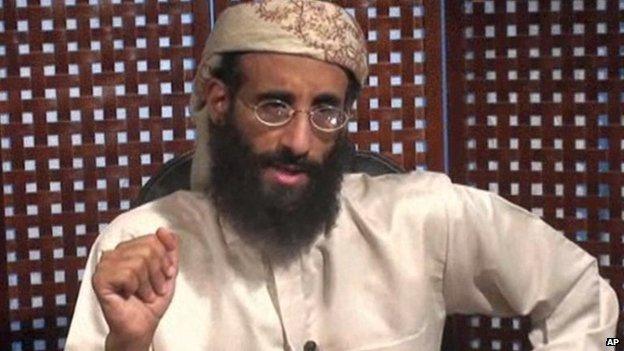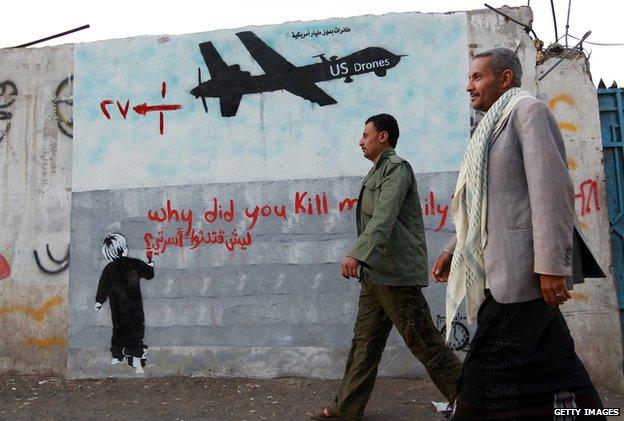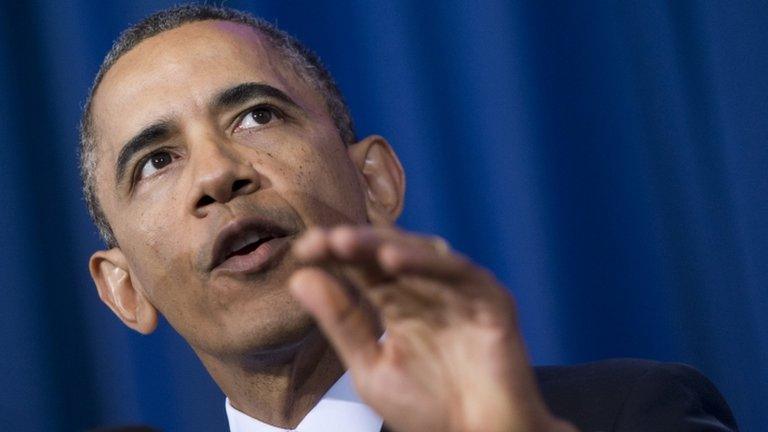Anwar al Awlaki killing: Court releases secret legal memo
- Published

Awlaki lived in the US for two lengthy periods of his life
A New York court has released the Obama administration's legal justification for the killing of a US citizen and suspected al-Qaeda leader in Yemen.
The previously secret justice department memo was published after a lawsuit by the American Civil Liberties Union (ACLU) and The New York Times.
Anwar al Awlaki was killed by a US drone attack in Yemen in 2011.
Critics have said Awlaki was killed without being given his right to legal due process as an American citizen.
The memo argues, external the killing was legal because he was an "operational leader" of an "enemy force" at war with the US.

Analysis - Aleem Maqbool, Washington DC
The justification of the killing of Anwar al-Awlaki under the established laws of armed conflict focuses on the view he posed the imminent threat of a violent attack against the US. He had been linked to numerous plots to kill Americans, including the shootings at a military base in Texas in 2009 in which 13 people died.
However there are legal experts who dispute the claim that Awlaki was beyond capture, and others who question whether the rules of "war" can be applied to the fight against militants around the world, including Yemen.
Even for those who accept the rationale for Anwar al-Awlaki's extrajudicial killing in 2011, it is harder to justify the apparently inadvertent deaths of two other American citizens killed in drone attacks around the same time, including Awlaki's 16-year-old son.

Jameel Jaffer, an ACLU lawyer who argued the case, said the memo's release "represents an overdue but nonetheless crucial step towards transparency".
"There are few questions more important than the question of when the government has the authority to kill its own citizens."
The document, still partially redacted, also says the killing of Awlaki by US military forces would be legal under an authorisation for the use of US force after the 9/11 attacks on New York and Washington DC.
It is dated July 2010, more than a year before Awlaki was killed.
Anwar al-Awlaki, a radical American Muslim cleric of Yemeni descent, was linked to a series of attacks and plots across the world - including the 9/11 attacks and the shootings at Fort Hood in November 2009.

Drone attacks by the US have caused anger in Yemen
Awlaki was born in 1971 in the southern US state of New Mexico, where his father, Nasser, a future Yemeni agriculture minister and university president, was studying agricultural economics.
He lived in the US until the age of seven, when his family returned to Yemen. He returned again for more than a decade to study and work, but left in 2002.
His family mounted a legal challenge after he was put on a US "kill list", authorising his death by the CIA, in order to stop the execution of one of its citizens without any judicial process.
- Published24 May 2013

- Published30 September 2011